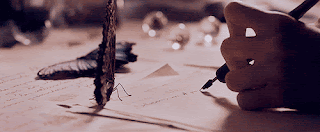Recently, I
have found out (unexpectedly) that my research skills have completely changed
my behavior. How could that happen? Well, I’m not sure but I do know that I
benefit from this proficiency every day (and not only when I’m working).
- I Always Look What Is at the Bottom of the Sea
When I
learn a new term or hear some new information, I instantly google it and never
stop on the simple definition. I want to know more: how and when did it appear?
Who contributed to it? What are the results of its existence? And I hardly can
stop there. The best benefit of the research skills is that you always want to
know more and deepen your knowledge on every new subject you come across. And
you know what it does with your mind besides widening horizons …
- “Anything You Say May Be Used Against You in the Court of Law”
When there
is a discussion, I never claim anything if I’m not 100% sure that it’s true. It
often happens that my friends have hot debates over some matters but I prefer
to avoid taking somebody’s side unless I know exactly who is right. That is the
habit that you acquire while researching and writing academic papers. There is
a strong benefit to that: I never turn out to be wrong :)
- I Can Find Any Info That I Need
When my
husband needs to find out when that lecture he attends is or my kids don’t know
how to make a cover for a DIY notebook, here comes the researcher that lives in
me. Well, it may seem that everybody can find that information and that is
true. But it concerns those who know how to form correct questions to type in
the search bar and this is exactly what research teaches people to do.
I think
that the research skills have greatly helped me to become a better person because,
now, I feel that I can find out anything I need or want. And that is a marvelous
feeling!
















